14
Aug
Study Shows Organic Food Diet Reduces Residues of Glyphosate in Body
 (Beyond Pesticides, August 13, 2020)Â Levels of the notorious herbicide compound glyphosate in the human body are reduced by 70% through a one-week switch to an organic diet, finds a new, peer-reviewed study published in August 2020 in the journal Environmental Research. This result emphasizes both the ubiquity of this compound in the human body, and diet as the primary source of exposure for most people. It also adds to the evidence for Beyond Pesticidesâ assertions that: (1) chemical-intensive agriculture must be abandoned, for a variety of reasons that include human health, and (2) in the lead-up to a transition to organic and regenerative agriculture, consuming organic foods as much as is practicable is powerful protection from glyphosate, and from the assault of multiple chemical pesticides to which most people are exposed.
(Beyond Pesticides, August 13, 2020)Â Levels of the notorious herbicide compound glyphosate in the human body are reduced by 70% through a one-week switch to an organic diet, finds a new, peer-reviewed study published in August 2020 in the journal Environmental Research. This result emphasizes both the ubiquity of this compound in the human body, and diet as the primary source of exposure for most people. It also adds to the evidence for Beyond Pesticidesâ assertions that: (1) chemical-intensive agriculture must be abandoned, for a variety of reasons that include human health, and (2) in the lead-up to a transition to organic and regenerative agriculture, consuming organic foods as much as is practicable is powerful protection from glyphosate, and from the assault of multiple chemical pesticides to which most people are exposed.
Glyphosate is the active ingredient in the popular weed killer RoundupTM, which has been used intensively in the U.S. and around the world, especially during the last couple of decades. It is very commonly used on crops grown from genetically engineered (GE) companion seeds for a variety of staple crops (e.g., soybeans, cotton, and corn). These GE seeds are glyphosate-tolerant, whose attribute has allowed growers to apply the herbicide and expect that it will kill weeds and not harm the crop. This calculation is changing, however, as weeds develop resistance to glyphosate, causing industry to double down on its chemical solutions.
The ready adoption of RoundupTM and GE seeds by growers has made exposures to glyphosate exceedingly common â especially from dietary exposure, as this study demonstrates. The researchers write, âRecent research indicates that the increase in use of glyphosate has been paralleled by an increase in exposure of the human population, at least in the U.S. It was reported that urine glyphosate levels increased more than five-fold from the mid-1970s to 2014, and that the percent of the population with detectable urine glyphosate levels increased nearly 600%, representing more than 70% of the population.â
In 2019, the Environmental Working Group, utilizing U.S. Department of Agriculture data, reported that roughly 70% of U.S. produce harbors pesticide residues. Also in that year, The Nation reported that more than 90% of the U.S. population has pesticides or their byproducts in their bodies, primarily from eating conventionally grown fruits and vegetables.
A previous study covered by Beyond Pesticides demonstrated the very significant reductions in urinary pesticide metabolites (breakdown products from parent compounds) achieved by a dietary shift from consuming conventionally grown food to organically grown foods. This subject research furthers the investigation of impacts of an organic diet on pesticide exposures. The study paper, Organic Diet Intervention Significantly Reduces Urinary Glyphosate Levels in U.S. Children and Adults, reports on the second phase of a two-part study evaluating the same set of urine samples. The study was funded by Friends of the Earth U.S.
The paper on the first part of the study, published in Environmental Research in 2019, evaluated the samples for metabolites of 13 pesticide compounds, including organophosphates, neonicotinoids, and pyrethroids, as well as 2,4-D. It found that the switch to organic diet was associated with significant reductions in urinary excretion of several of the pesticide metabolites and parent compounds.
This second part of the two-part study found that, prior to the shift to organic foods, 100% of test subjects â both adults and children â showed the presence of glyphosateâs primary metabolite, AMPA (aminomethyl phosphonic acid) in urine samples (the standard way to measure pesticide residues in the body). Furthermore, the average level of the compound in the subject children was fivefold that in the studyâs adult participants.
Research participants comprised individuals from four geographically and racially diverse U.S. families hailing from Baltimore, Atlanta, Minneapolis, and Oakland. Urine samples were collected during a six-day period in which all subjects consumed a diet of conventionally grown and raised foods, and again during a six-day period of only organic food consumption. Although the study sample was small (16), the number of urine samples assayed (158) was sufficient for researchers to make statistically significant conclusions.
The outcome metrics are fairly stunning: average glyphosate levels, after the six days of an organic diet, dropped by 70.93%, and mean AMPA levels fell by 76.71%. When level reductions in adults and children during the organic phase were examined separately, roughly similar results were seen: adult glyphosate levels fell by 71.59% and AMPA metabolites by 83.3%. In children, the reductions were a 70.85% glyphosate decrease and a 69.85% dip in AMPA.
Study co-author and senior staff scientist at Friends of the Earth, Kendra Klein, PhD, commented: âItâs striking that levels of this toxic pesticide dropped so dramatically after less than a week. Given our results and related studies on how an organic diet rapidly reduces pesticide exposure, we could expect to see similar reductions in glyphosate levels in most Americans if they switched to an organic diet. Thatâs the good news. The bad news is that most of us are eating glyphosate-laden food continuously, resulting in daily doses of the chemical from breakfast through dinner.â
Although the roughly dozen manufacturers of glyphosate herbicides (Bayer being the largest) tout them as safe, there is ample evidence that this is not the case, for either human or ecosystem health. Glyphosate exposure can have myriad health effects (e.g., contributions to cardiac, metabolic, endocrine, respiratory, reproductive, gastrointestinal, and immune dysfunction), including cancer (especially non-Hodgkinâs lymphoma), Parkinsonâs Disease, and adverse multigenerational impacts, among others. In addition, glyphosate is implicated in altering the human gut biome; disturbances in that biome are associated with a plethora of diseases, including asthma, autism, bacterial vaginosis, cardiovascular disease, cancer, Crohnâs disease, depression, inflammatory bowel disease, leaky gut syndrome, multiple sclerosis, obesity, Type 1 and 2 diabetes, and Parkinsonâs Disease.
These many potential impacts make the extent of glyphosateâs presence in human bodies, as evidenced through this study, very concerning. Yet the speed with which residues of the pesticide can be brought dramatically lower with changed dietary practices is encouraging.
Dr. Klein of Friends of the Earth notes: âWe all have the right to food that is free of toxic pesticides, but our federal regulatory system is broken and is not protecting us. We urgently need our elected leaders to make healthy organic food the norm for everyone by passing policies that support farmers to shift from pesticide-intensive to organic farming.â Dr. Kleinâs colleague and co-author Sharyle Patton, Director of the Commonweal Biomonitoring Resources Center, added, âDuring the coronavirus pandemic, the inequities of our food system have become ever more clear. Research shows that communities of color are at higher risk of serious complications and death from coronavirus as a result of already suffering from higher rates of diet-related diseases. Now more than ever, we need public policies that ensure that all communities have access to healthy, organic food.â
Beyond Pesticides could not agree more. The headline for any sensible public guidance on avoiding exposures to glyphosate would have to be: eat organic food whenever possible. There are other protective strategies, including: avoiding use of glyphosate products in home gardens or on lawns; paying attention to water quality reporting for local water supplies; and advocating for nontoxic, organic land management and agriculture. Follow Beyond Pesticides coverage of glyphosate through the Daily News Blog and the journal, Pesticides and You, and become a supporting member of this organization, which is dedicated to sound information on pesticides, and advocacy on moving to less- and nontoxic practices for a safer world.
Sources: https://sustainablepulse.com/2020/08/11/glyphosate-levels-in-children-and-adults-drop-dramatically-after-one-week-of-eating-organic/#.XzQJXhNKjde  and https://www.sciencedirect.com/science/article/pii/S0013935120307933.
All unattributed positions and opinions in this piece are those of Beyond Pesticides.









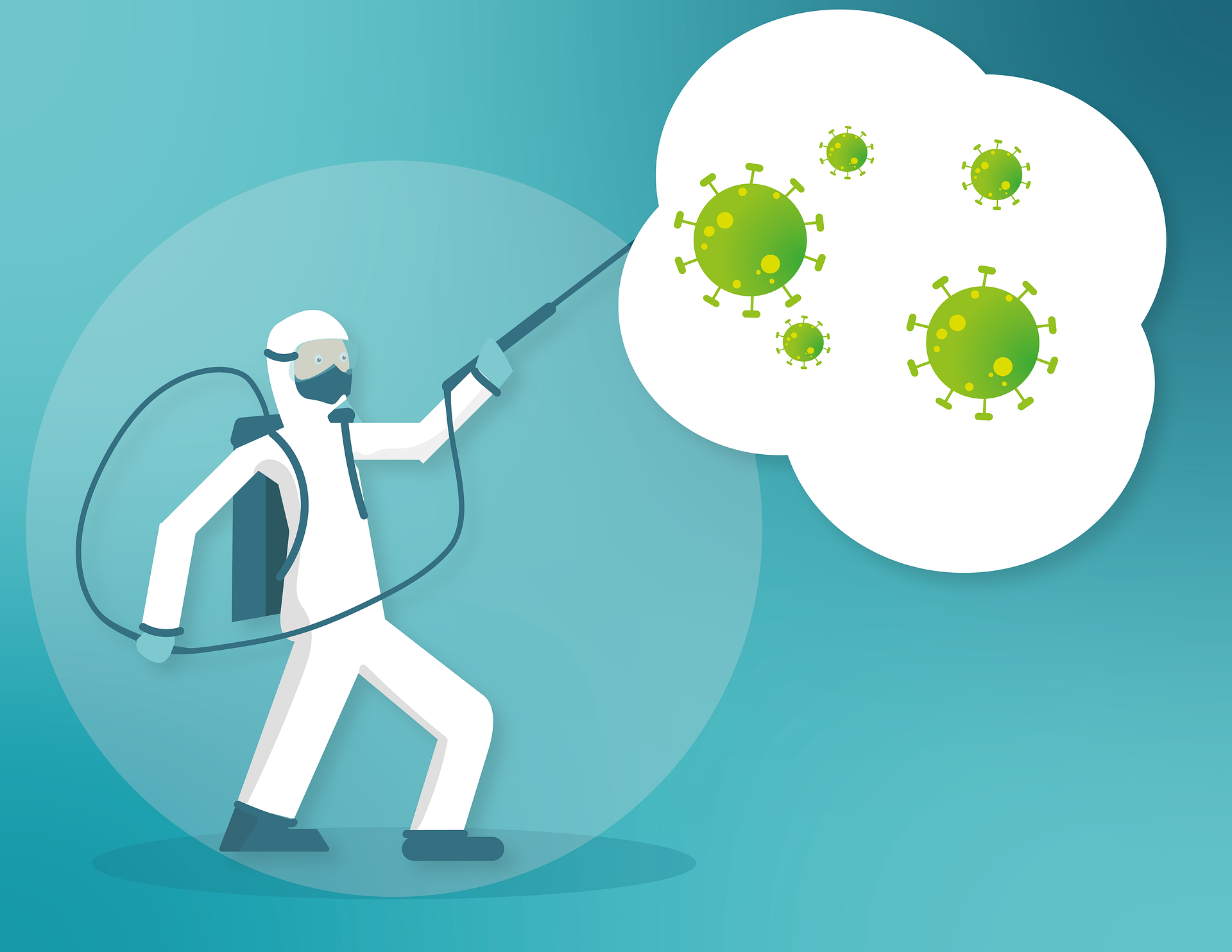 (Beyond Pesticides, August 13, 2020) An alarming new scientific report finds that excessive, indiscriminate disinfectant use against COVID-19 puts wildlife health at risk, especially in urban settings. The analysis, published in the journalÂ
(Beyond Pesticides, August 13, 2020) An alarming new scientific report finds that excessive, indiscriminate disinfectant use against COVID-19 puts wildlife health at risk, especially in urban settings. The analysis, published in the journal  (Beyond Pesticides, August 12, 2020) The herbicide atrazine can interfere with the health and reproduction of marsupials (including kangaroos and opossums)
(Beyond Pesticides, August 12, 2020) The herbicide atrazine can interfere with the health and reproduction of marsupials (including kangaroos and opossums) 
 (Beyond Pesticides, August 10, 2020) As parents, educators, and administrators decide whether to open schools with in-person teaching, there are escalating concerns about the ability of schools to put in place the programs necessary to protect the health of students, staff, and their families from coronavirus (COVID-19). A key part of most school reopening plans is the fogging or misting of classrooms with toxic disinfectants, raising questions about safe and effective disinfection and sanitizing practices, in addition to social practices that public health officials have advised, to prevent transmission of the virus.
(Beyond Pesticides, August 10, 2020) As parents, educators, and administrators decide whether to open schools with in-person teaching, there are escalating concerns about the ability of schools to put in place the programs necessary to protect the health of students, staff, and their families from coronavirus (COVID-19). A key part of most school reopening plans is the fogging or misting of classrooms with toxic disinfectants, raising questions about safe and effective disinfection and sanitizing practices, in addition to social practices that public health officials have advised, to prevent transmission of the virus.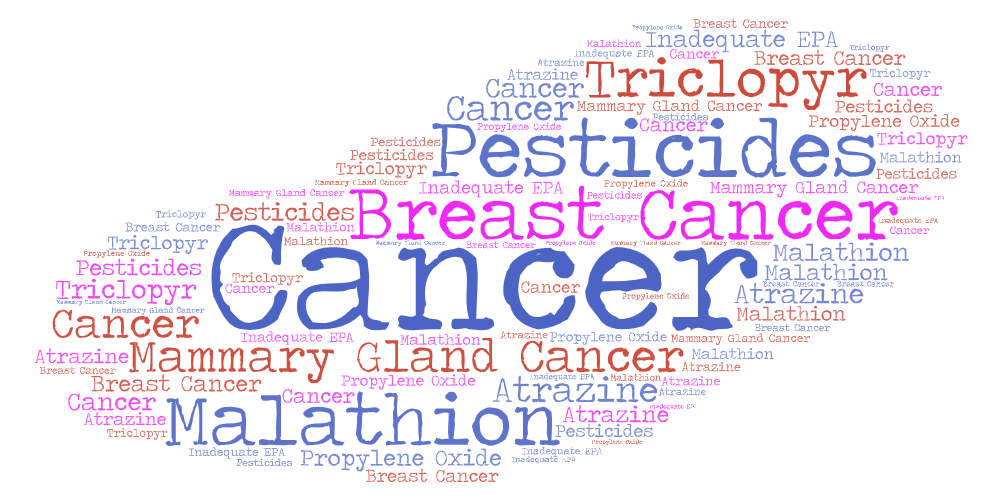 (Beyond Pesticides, August 7, 2020) Research out of the Silent Spring Institute
(Beyond Pesticides, August 7, 2020) Research out of the Silent Spring Institute 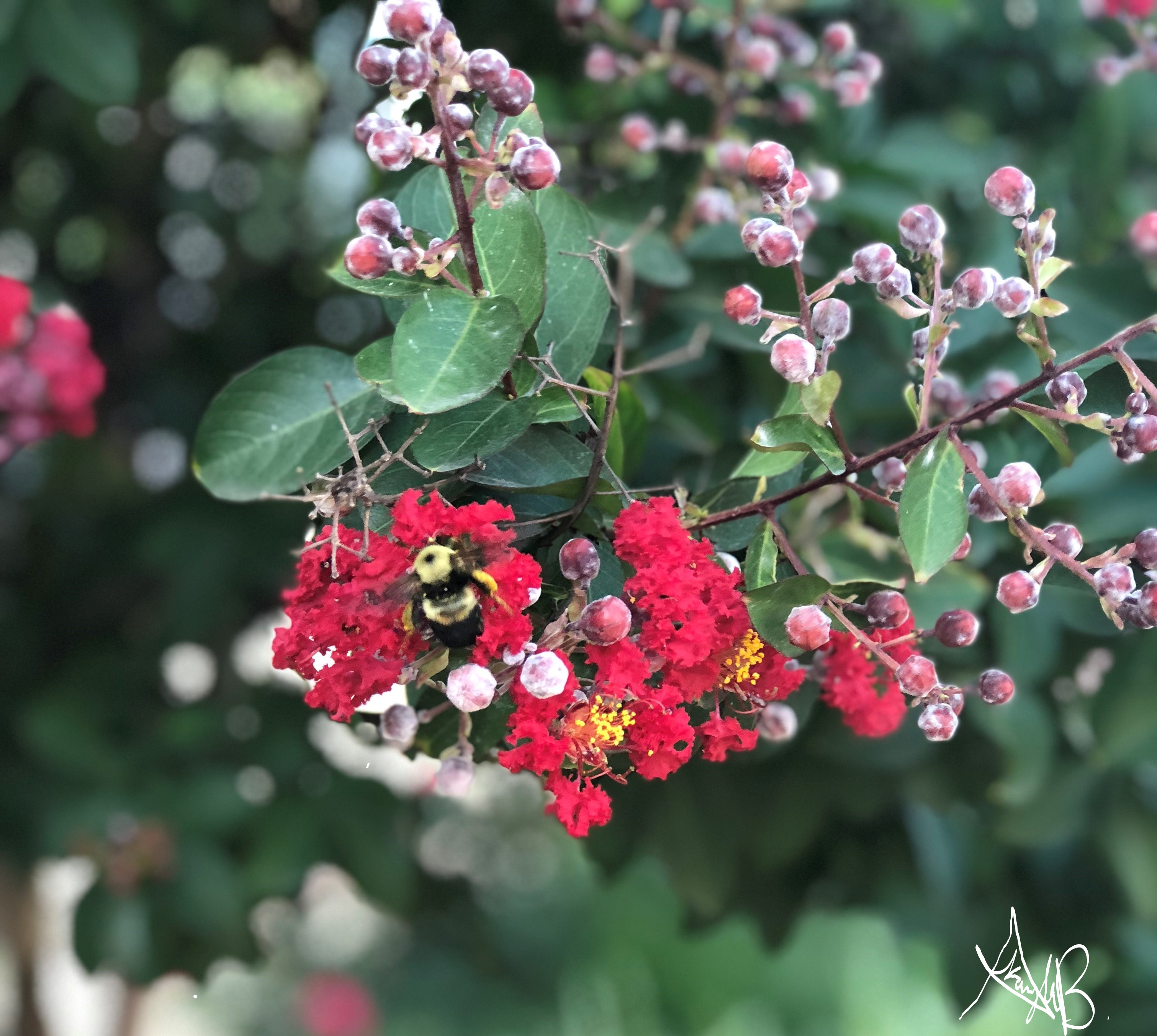 (Beyond Pesticides, August 6, 2020) New research finds that a decline in wild pollinator abundance, notably wild bees, limits crop yields in the U.S., according to the study, â
(Beyond Pesticides, August 6, 2020) New research finds that a decline in wild pollinator abundance, notably wild bees, limits crop yields in the U.S., according to the study, â (Beyond Pesticides, August 5, 2020) Regions of Australia that use a highly toxic rodenticide are home to larger dingoes than areas where the pesticide is not used, according to research published in the
(Beyond Pesticides, August 5, 2020) Regions of Australia that use a highly toxic rodenticide are home to larger dingoes than areas where the pesticide is not used, according to research published in the  (Beyond Pesticides, August 4, 2020) Last month Massachusetts lawmakers finalized, and the Governor subsequently signed,
(Beyond Pesticides, August 4, 2020) Last month Massachusetts lawmakers finalized, and the Governor subsequently signed,  (Beyond Pesticides, August 3, 2020)Â The effects of pesticide use are important, yet ignored, factors affecting people of color (POC) who face elevated risk from Covid-19 as essential workers, as family members of those workers, and because of the
(Beyond Pesticides, August 3, 2020)Â The effects of pesticide use are important, yet ignored, factors affecting people of color (POC) who face elevated risk from Covid-19 as essential workers, as family members of those workers, and because of the  (Beyond Pesticides, July 31, 2020)Â On July 22, the New York State Legislature passed
(Beyond Pesticides, July 31, 2020)Â On July 22, the New York State Legislature passed  (Beyond Pesticides, July 30, 2020) Simultaneous exposure to pesticides and noise from agricultural machinery increases farmworkers, risk of hearing loss, according to the study, â
(Beyond Pesticides, July 30, 2020) Simultaneous exposure to pesticides and noise from agricultural machinery increases farmworkers, risk of hearing loss, according to the study, â (Beyond Pesticides, July 29, 2020) Farmworkers and landscapers are deemed essential employees during the coronavirus outbreak, but without mandated safety protocols or government assistance, have experienced an explosion in Covid-19 cases. Workers in these industries are primarily Latinx people of color, many of whom are undocumented. According to a
(Beyond Pesticides, July 29, 2020) Farmworkers and landscapers are deemed essential employees during the coronavirus outbreak, but without mandated safety protocols or government assistance, have experienced an explosion in Covid-19 cases. Workers in these industries are primarily Latinx people of color, many of whom are undocumented. According to a 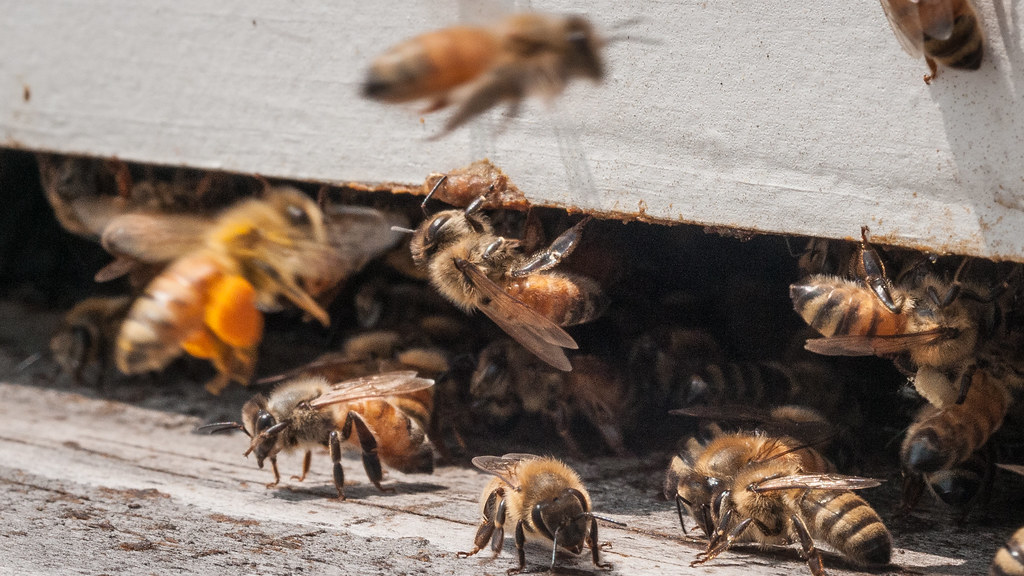 (Beyond Pesticides, July 28, 2020) With honey bees around the world under threat from toxic pesticide use, researchers are investigating a new way to track environmental contaminants in bee hives. This new product, APIStrip (Adsorb Pesticide In-hive Strip), can be placed into bee hives and act as a passive sampler for pesticide pollution. Honey bees are sentinel species for environmental pollutants, and this new technology could provide a helpful way not only for beekeepers to pinpoint problems with their colonies, but also track ambient levels of pesticide pollution in a community.
(Beyond Pesticides, July 28, 2020) With honey bees around the world under threat from toxic pesticide use, researchers are investigating a new way to track environmental contaminants in bee hives. This new product, APIStrip (Adsorb Pesticide In-hive Strip), can be placed into bee hives and act as a passive sampler for pesticide pollution. Honey bees are sentinel species for environmental pollutants, and this new technology could provide a helpful way not only for beekeepers to pinpoint problems with their colonies, but also track ambient levels of pesticide pollution in a community. (Beyond Pesticides, July 27, 2020)
(Beyond Pesticides, July 27, 2020) 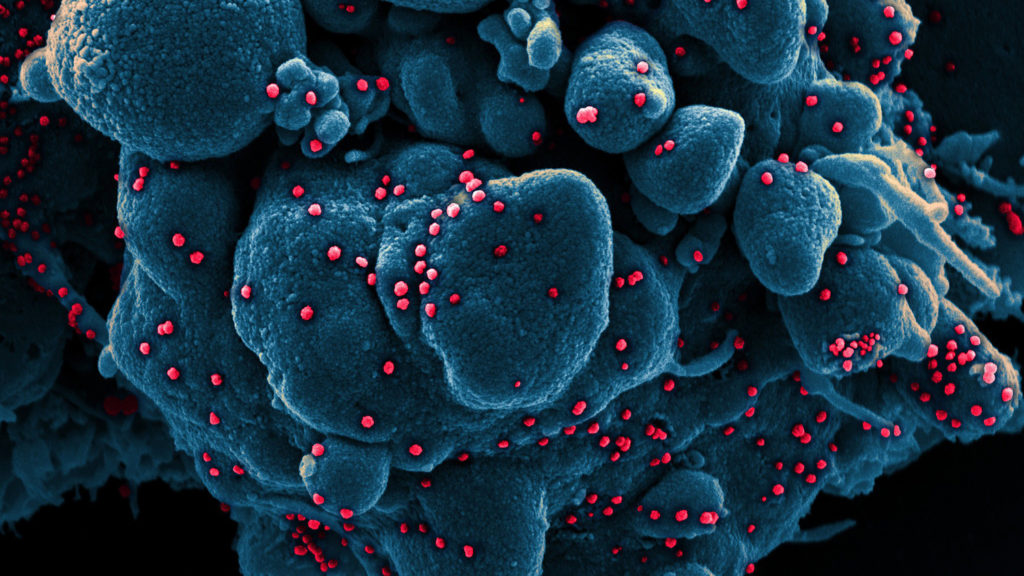 (Beyond Pesticides, July 24, 2020)Â As the novel coronavirus pandemic has heightened awareness of infectious diseases, there is increased attention to connections between environmental concerns and such diseases, including factors that may exacerbate their transmission.
(Beyond Pesticides, July 24, 2020)Â As the novel coronavirus pandemic has heightened awareness of infectious diseases, there is increased attention to connections between environmental concerns and such diseases, including factors that may exacerbate their transmission.  (Beyond Pesticides, July 23, 2020) Chronic pesticide use, and subsequent exposure, elevate a personâs risk of developing lung cancer, according to a study published inÂ
(Beyond Pesticides, July 23, 2020) Chronic pesticide use, and subsequent exposure, elevate a personâs risk of developing lung cancer, according to a study published in 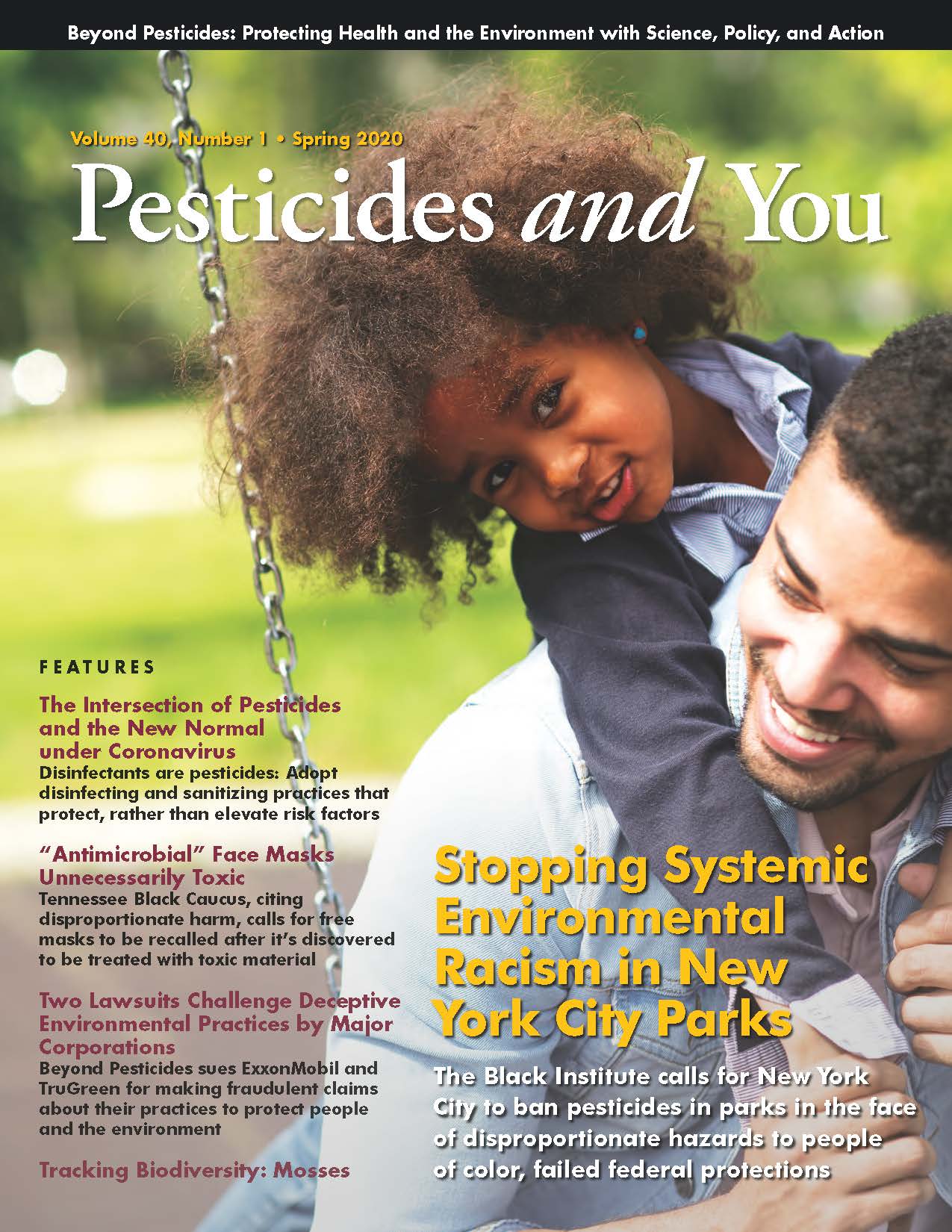 (Beyond Pesticides, June 22, 2020) In the latest issue of
(Beyond Pesticides, June 22, 2020) In the latest issue of  (Beyond Pesticides, July 21, 2020) Climate change and pesticide pollution are known to put coral reef fish at significant risk, but research published in
(Beyond Pesticides, July 21, 2020) Climate change and pesticide pollution are known to put coral reef fish at significant risk, but research published in  (Beyond Pesticides, July 20, 2020) Does your community spray toxic pesticides for mosquitoes? In a well-intentioned but ill-informed attempt to prevent mosquito-borne illness such as West Nile virus, many communities spray insecticides (adulticides) designed to kill flying mosquitoes. If your community is one of these, then your public officials need to know that there is a better, more-effective, way to prevent mosquito breeding.
(Beyond Pesticides, July 20, 2020) Does your community spray toxic pesticides for mosquitoes? In a well-intentioned but ill-informed attempt to prevent mosquito-borne illness such as West Nile virus, many communities spray insecticides (adulticides) designed to kill flying mosquitoes. If your community is one of these, then your public officials need to know that there is a better, more-effective, way to prevent mosquito breeding. (Beyond Pesticides, July 17, 2020)Â
(Beyond Pesticides, July 17, 2020)Â 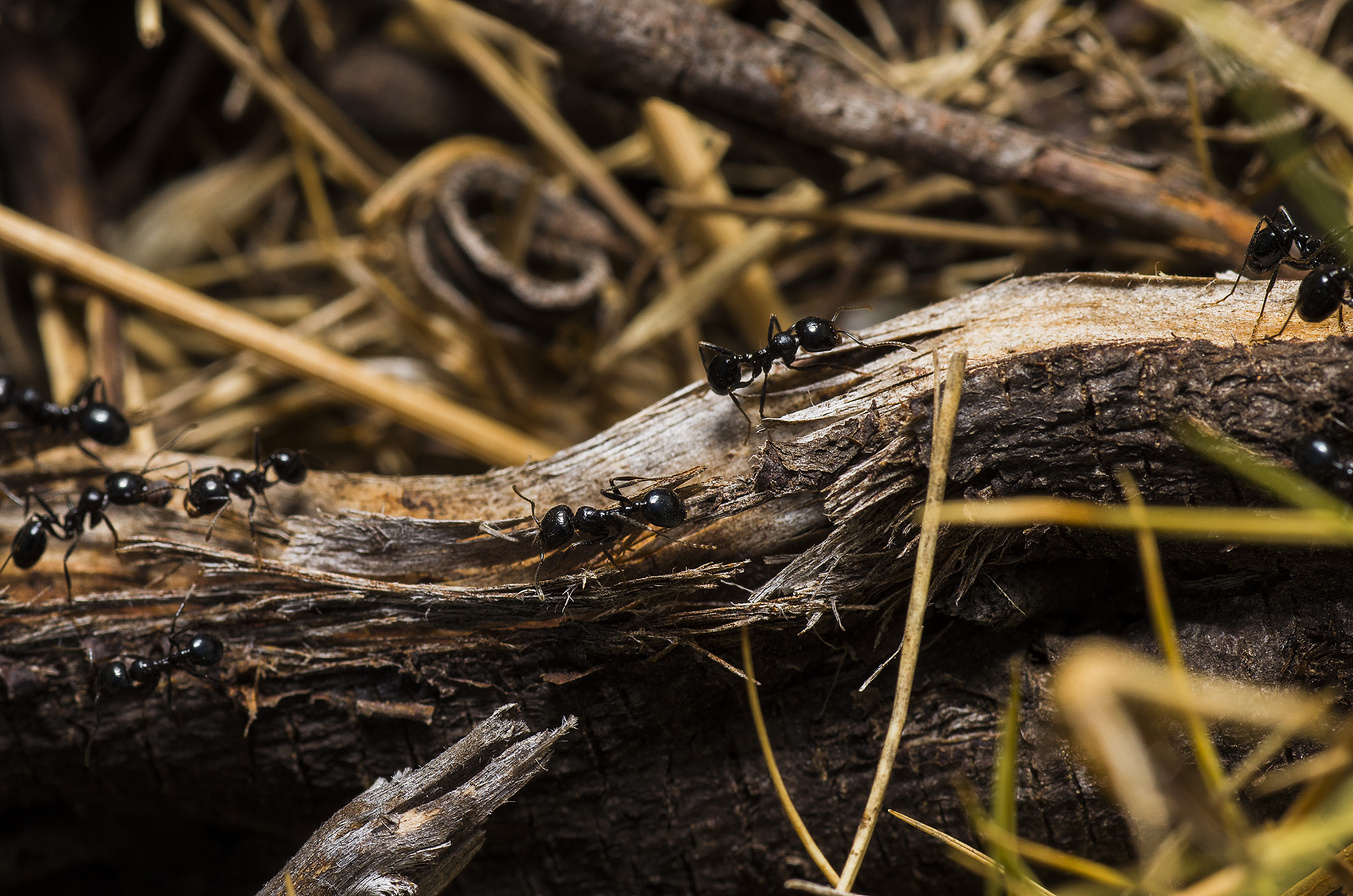 (Beyond Pesticides, July 16, 2020) Long-term exposure to sublethal (low-level) concentrations of the neonicotinoid in soil negatively affects the health and behavioral development of black garden ants (Lasius niger) colonies, according to a study published inÂ
(Beyond Pesticides, July 16, 2020) Long-term exposure to sublethal (low-level) concentrations of the neonicotinoid in soil negatively affects the health and behavioral development of black garden ants (Lasius niger) colonies, according to a study published in 
